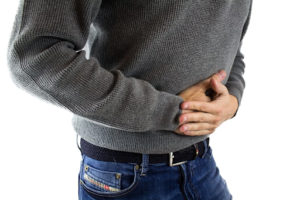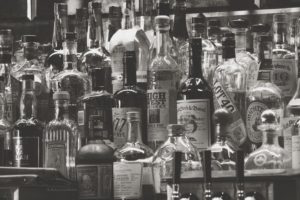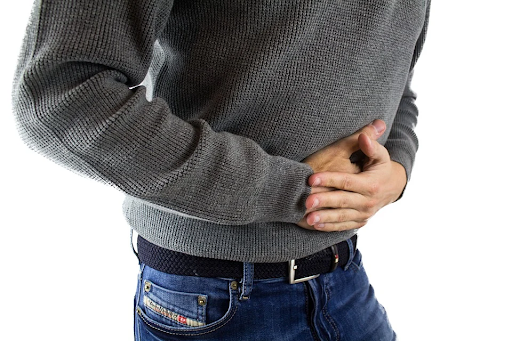As you age, you are more likely to catch diseases. One of the things you have to watch out for is diverticulosis. It is the formation of pockets or bulges, known as diverticula, on the lining of your colon.
While people rarely show symptoms, some may feel mild cramps, bloating, or constipation. According to studies, it commonly affects Western populations, especially in people aged 60 and over.
If you’re diagnosed with this disease, you should not worry, though. By following a diverticulosis diet and controlling your alcohol consumption, you can avoid this gastrointestinal condition.
However, the latter can be a challenge for someone struggling with alcohol abuse. Alcoholism is a type of addiction that causes a person to drink excessive amounts of alcohol. To help manage your alcohol intake, it will help if you admit yourself to alcohol rehab.
What Causes Diverticulosis to Flare Up
A diverticulum is known to develop when you don’t eat enough fiber. Lacking fiber in your diet can make stools drier, smaller, and more difficult to pass.
Because of this, your intestinal muscle exerts more effort to transport them. This intense pressure pushes the inner lining of your gut through the muscle wall, creating a diverticulum or small, bulging pockets.
Once these small pockets become inflamed and infected, it becomes diverticulitis. Hence, to prevent symptoms from worsening, a diverticulosis diet can help.

Risk Factors Associated With Diverticulosis
Aside from a low-fiber diet, there are other risk factors linked to diverticulitis such as:
- Eating foods containing saturated fats causes constipation or infrequent bowel movements that could retain food particles in the diverticula and inflame it.
- Lack of bodily fluids – When dehydrated, your intestines can’t add water to your stools. Moving a hard stool can put a strain on your gut muscles.
- Your genes – Diverticulitis is believed to be linked to genetics, but the specific genes implicated are unknown.
- Polycystic kidney disease – Some people with existing polycystic kidney disease are known to develop diverticulosis and diverticulitis.
- Overweight and obesity – People with obesity have an increased risk of having diverticula. It is mainly because of their low dietary fiber intake, excessive red meat consumption, and physical inactivity.
- Ingesting corticosteroids or nonsteroidal anti-inflammatory drugs (NSAIDs) – These drugs are known to injure the gastrointestinal tract. NSAIDs may also inhibit the growth of a compound that keeps the gut tissue healthy.
- Lack of exercise – Being active can contribute to weight loss and healthy bowel movement.
- Excessive alcohol intake – While a study shows some inconsistency in linking alcohol consumption to diverticulitis, others suggest that alcohol effects on diverticulosis include decreased colon motility.
- Smoking cigarettes – Smoking reduces the blood supply to the colon and can raise the pressure within it, increasing the risk of perforation.
What Foods Aggravate Diverticulosis
In the past, patients were advised not to eat nuts, seeds, corn, and popcorn to reduce the incidence of diverticular disease. However, there is not enough evidence to support this claim.
If you have diverticula, focus on having a healthy diet and avoid the following:
Red and Processed Meat
Based on research, a diet rich in red and processed meats may increase your chance of developing diverticulitis. Meanwhile, eating fruits, vegetables, and whole grains can help lower this risk.
Foods with High Sugar and Fat Content

The typical Western diet mostly consists of high fat and sugar and low fiber content. Given this fact, here are some foods to avoid with diverticulosis:
- Full-sugar soft drinks
- Refined grains
- Full fat dairy
- Fried food
High-Fiber Food (During Flare-ups)
Since fiber increases colon contractions, eating high-fiber foods may hurt your gut during an acute diverticulitis attack. Having said that, you need to avoid the following:
- Beans and legumes
- Whole grains
- Vegetables
- Fruits
Know that each person has unique requirements. It’s always best to consult with your medical provider before drastically changing your diet.
Can You Drink Alcohol If You Have Diverticulitis?
No, it’s not advisable to drink alcohol since it significantly impacts the gastrointestinal tract. Doing this may further damage an inflamed intestine, and the effects are even worse if you are a heavy drinker.

Studies found that the more alcohol you consume, the higher the risk of developing this disease. In fact, alcohol drinkers are more likely to be affected by this condition in comparison to nondrinkers.
What Can I Eat and Drink If I Have Diverticulosis?
Your doctor may recommend a list of diverticulosis foods to avoid and ask you to make dietary adjustments. This allows your digestive tract to rest from irritants while undergoing treatment.
They may instruct you to take a two-to-three day clear liquid diet wherein you’ll only drink broth, pulp-free fruit juices, plain gelatin, and water.
After drinking only clear liquid for several days, you can gradually eat low-fiber foods, including eggs, white bread, dairy, poultry or fish, well-cooked vegetables, and white rice. As you feel better, you may increase your fiber intake to normal levels.
To maintain adequate nutrition while managing the symptoms of diverticulitis, you may benefit by following a diverticulosis diet which includes:
Low Fiber Foods
- white rice, white bread, or pasta
- cereals without whole grains
- dried fruits
- fish, shellfish, poultry, or eggs
- tofu
- olive oil
- yellow squash, zucchini, or pumpkin with seeds removed
- cooked spinach, beets, carrots, or asparagus
- potatoes without skin
- strained fruit and vegetable juices
Clear Liquid
- water
- ice chips
- soup broth or stock
- plain gelatin
- tea or coffee without sugar, milk, or other flavorings
- clear electrolyte drinks
Other Dietary Considerations
Drinking plenty of water every day is beneficial whether you’re on a clear liquid diet or not. This helps you stay hydrated while also supporting your digestion.
As diverticulitis becomes increasingly common with age, you need to prioritize your health as you grow old. Create a diverticulosis diet plan, exercise regularly, and abstain from alcohol. With the right preventive measures, you can protect your health and get everything under control.
Are you suffering from alcohol and substance abuse disorders? Roots Through Recovery offers treatment programs to help you withdraw from alcohol safely and stay sober. We’ll help you determine triggers and impart with you strategies to avoid them.
Visit our alcohol rehab center in Long Beach, CA located at 3939 Atlantic Ave, Suite 102 Long Beach, CA 90807, or contact us at 562-249-5022 to schedule an appointment.





17 thoughts on “Diverticulosis Diet: List of Food and Drinks Recommended to Avoid Flare Up”
Which cereals can I eat? Can I eat cold cuts? Can I eat tuna?
Can I have ground Turkey cantaloupe, tuna, cold cuts, eggs cheese?? What Fruits can I have
It would be nice if there was a link to some kind of meal planning guide/cookbook that featured foods that were good for folks who have diverticulOSIS…. There is plenty of specific information on foods to manage a Diverticulitis, but not really a good list, resource for managing the OSIS condition…. … Just kind of a general avoid meats and fats…. I have some blood sugar issues, pre-diabetes, which means limited carbs…. Just sayin’ …. a good meal planning guide and/or a recipe book with suggestions for managing the OSIS piece of this disease…
what you said on here…..IT’S THE TRUTH!!
I agree 100%
There is a book Diet for Diverticulitis I purchase through AMAZON
I agree with everything Ernest Schuls said in his April 11, 2022, 3:42 pm comment. I was told by my gastro doctor to be on a high fiber diet, but this doesn’t seem to be what I am reading for diverticulOSIS even though I was diagnosed last Monday. I was told by his nurse today that I was to be sure that I had loose stools, but gave me no recommendations as to what to eat. I asked if I should take a stool softener to which she replied, “Yes”, but I told her I was taking Benefiber daily and she said that should be enough. She said the doctor should be contacting me shortly as my file was on his desk.
Try Google for information. I am going to see a dietician.
My gastro doc recommended I take Colace daily (no more than 2x a day) as a gentle stool softener to minimize constipation and straining during BMs. It was a life changer for me!!! As diverticulosis is genetic, I maintain a diet of chicken, fish and spinach as my predominant diet. I don’t eat any grains or processed foods either (my personal choice for digestive health). Of course, make sure you get a minimum of 64 oz of fluid a day as well.
I’ve had this for 7 months and I’m in so much pain swelling out from my ribs !! What can I do ?
you may have blockage/ go see your dr. I was in the hosp 14 days with this,
i was diagnosed about 10 years ago and told to stay away from shell fish so for 10 years no lobsters, baked clams, shrimp etc. now I see it is ok to have them. will let you know next week how it works out YOU KNOW I AM GOING TO TRY IT AS WELL AS INCREASE TO A HIGH FIBER CERAL EACH DAY
Hemp seed oil works great along with a good diet. Watch out for sugars, high carbs, meats, I’m still looking for good recipes.. no luck so far. Lots of greens.. veggies.
Harvard medical school says its ok to eat nuts etc while cleveland says no. How are we to know which ave to go down with so much controversy?
My doctor said if you eat it with no problem continue to eat it. That was from 20 yrs ago my doctor told me 6 yrs ago when I was diagnosed. Good luck!
Try Google for information. I am going to see a dietician.
i have diverticulosis can i have fried catfish with cornmeal idrink lots of water